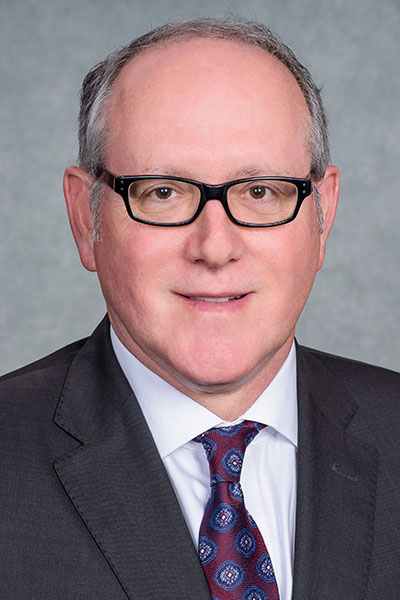Of the thousands of abstracts submitted for ACR Convergence every year, many end up as posters. A few dozen merit oral presentations. And a handful are selected for presentation in the Plenary sessions.

“The three plenary sessions are the cream of the abstract crop, the abstracts given the very highest rankings by reviewers with special expertise in their area,” said ACR President Kenneth G. Saag, MD, MSc. Dr. Saag will co-moderate Plenary I on Saturday, November 12, from 11:30 a.m.–1 p.m. ET, with Sharon Kolasinski, MD, FACR, Chair of the Annual Meeting Planning Committee (AMPC). Dr. Kolasinski is Professor of Clinical Medicine, Perelman School of Medicine, and Chief of Rheumatology, University of Pennsylvania Presbyterian Medical Center.
“Our three plenaries represent the most outstanding science with the greatest impact on public health, clinical care, and fundamental science in rheumatology and musculoskeletal medicine,” said Dr. Saag, the Water’s Professor and Director of Clinical Immunology and Rheumatology and of the Comprehensive Arthritis, Musculoskeletal, Bone, and Autoimmunity Center, University of Alabama at Birmingham School of Health Professions. “The great science being presented at these plenaries is just one reason ACR Convergence is the premier scientific event of the year for our subspecialty.”
The three plenary sessions will be held in Exhibit Hall A of the Pennsylvania Convention Center. Registered ACR Convergence attendees have the option to attend the sessions in person or on the meeting website via livestream, or to view the sessions on demand.

“We are very conscious of the need to identify the very newest in trends and technologies, new mechanisms of actions, new targets, and new clinical approaches,” said Gregg Silverman, MD, the Mamdouha S. Bobst Professor of Internal Medicine and Professor of Pathology, New York University School of Medicine. He will co-moderate Plenary II on Sunday, November 13, from 11:30 a.m.–1 p.m. ET, with Tracy Frech, MD, MS, Associate Professor of Rheumatology and Immunology, Vanderbilt University Medical Center.
“As a molecular immunologist, I’m particularly interested in mechanisms and new therapies,” Dr. Silverman said. “We have an abstract on remibrutinib, an oral agent that has the first truly promising results in Sjögren’s syndrome. This report from the DANBIO registry in Denmark shows that in patients with rheumatoid arthritis with low disease activity or in remission on one biosimilar agent based on infliximab, an anti-TNF agent, you can switch to another biosimilar agent without losing efficacy or triggering adverse events. Another study shows that copayments make a difference in lower treatment adherence for patients with lupus.”

Zsuzsanna McMahan, MD, MHS, Associate Professor of Rheumatology, Johns Hopkins Medicine, will co-moderate Plenary III on Monday, November 14, from 11:30 a.m.–1 p.m. ET, with Anne Davidson, MBBS, FRACP, Professor of Molecular Medicine, Donald and Barbara Zucker School of Medicine at Hofstra/Northwell.
“All of the plenary abstracts have a very high probability to impact patient care and management, some of them in the near term,” Dr. McMahan said. “And we’re seeing some novel types of research this year, like a 3-D skin modeling for scleroderma in Plenary II and chimeric autoantigen-T cell receptor therapies in Plenary III. Whether you’re looking at clinical medicine and patient care, health policy, or basic research, the overarching aim of all these studies is to change the ways we do things and improve them.”
Plenary I | Saturday, November 12
- 12-month Findings of the Randomized, Double-Blind, Placebo-Controlled, Multicenter, Efficacy and Safety Study of Methotrexate to Increase Response Rates in Patients with Uncontrolled GOut Receiving Pegloticase (MIRROR RCT)
- Cancer Screening Recommendations for Patients with Idiopathic Inflammatory Myopathy
- Rituximab versus Cyclophosphamide for the Treatment of Connective Tissue Disease Associated Interstitial Lung Disease (RECITAL): A Sub-group Analysis of a Multi-centre Randomized Controlled Trial
- mTORC1 Drives the Spectrum of Pathology in Systemic JIA and Macrophage Activation Syndrome
- The Rheumatology Access Expansion (RAE) Initiative: Improving Rheumatoid Arthritis Care on Navajo Nation Through Primary Care Provider Education
Plenary II | Sunday, November 13
- Biosimilar-to-Biosimilar Switching in Routine Care – Results on >1,600 Patients with Inflammatory Arthritis in the DANBIO Registry
- Remibrutinib (LOU064) in Sjögren’s Syndrome: Safety and Efficacy Results from a 24‑Week Placebo-controlled Proof-of-Concept Study
- Computational Drug Repositioning and 3D Skin Models Identify EGFR and PI3K Inhibitors as Anti-fibrotic Targets for Systemic Sclerosis
- Medication Co-pay Modifies Treatment Adherence in Patients with Systemic Lupus Erythematosus
- Peripheral Blood DNA Methylation-based Machine Learning Models for Prediction of Knee Osteoarthritis Progression: Biospecimens and Data from the Osteoarthritis Initiative and Johnston County Osteoarthritis Project
- Efficacy and Safety of Deucravacitinib, an Oral, Selective, Allosteric TYK2 Inhibitor, in Patients with Active Systemic Lupus Erythematosus: A Phase 2, Randomized, Double-Blind, Placebo-Controlled Study
Plenary III | Monday, November 14
- Effectiveness of Intensive Diet and Exercise on Knee Pain Among Communities with Knee Osteoarthritis, Overweight, and Obesity: The WE-CAN Pragmatic Randomized Clinical Trial
- Sarilumab in Patients with Relapsing Polymyalgia Rheumatica: A Phase 3, Multicenter, Randomized, Double Blind, Placebo Controlled Trial (SAPHYR)
- Chimeric Autoantigen-T Cell Receptor (CATCR)-T Cell Therapies to Selectively Target Autoreactive B Cells
- A Genome-Wide Association Analysis of 2,622,830 Individuals Reveals New Pathogenic Pathways in Gout
- The Childhood Arthritis and Rheumatology Research Alliance Start Time Optimization of Biologic Therapy in Polyarticular JIA (STOP-JIA) Study: Three-Year Outcomes
- Module Signatures of Synovial Single-cell States Identify Disease Phenotypes in Early Treatment-naive Rheumatoid Arthritis
Register Today for ACR Convergence 2025

If you haven’t registered for ACR Convergence 2025, register today to participate in this year’s premier rheumatology experience, October 24–29 in Chicago. All registered participants receive on-demand access to scientific sessions after the meeting through October 31, 2026.
